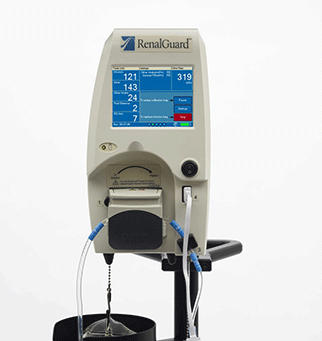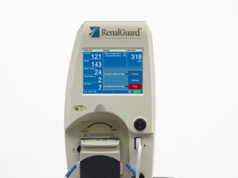
A first-in-man, feasibility study of the use of the RenalGuard system in patients undergoing coronary artery bypass grafting (CABG) shows the potential of RenalGuard therapy to safely reduce the incidence of acute kidney injury in the cardiac surgery setting. The 10-patient pilot study was published online in the journal Open Heart.
All of the patients who were undergoing CABG in the study were at increased risk of developing acute kidney injury. RenalGuard therapy, a press release reports, was initiated for all patients prior to the beginning of the procedure, and continued for six to 12 hours after the patient was transferred to the cardiac intensive care unit (CICU). The median intensive care stay was 1.5 days.
None of the patients enrolled in the study developed acute kidney injury within 36 hours of surgery, despite one patient developing cardiac tamponade eight hours postoperatively and one patient developing paralytic ileus. One patient, however, was electively haemofiltered on day two after developing acute right ventricular failure. Additionally, one patient developed stroke one week postoperatively. Investigators Heyman Luckraz (Department of Cardiothoracic Surgery, Heart & Lung Centre, Wolverhampton, UK) report that they did not believe these adverse events were related to the use of the RenalGuard system.
Luckraz et al conclude that: “The RenalGuard system can be used successfully in patients undergoing cardiac surgery with CPB and may reduce the incidence of acute kidney injury in at-risk patients.”
RenalGuard Solutions president and chief executive officer, Jim Dillon says: “We are very gratified by the results of this pilot study of RenalGuard in the cardiac surgery setting, which show this technology’s promise in this new application as a means to protect a very high-risk population from cardiac surgery-associated acute kidney injury. We look forward to further exploring the use of the RenalGuard system to reduce the incidence of acute kidney injury in this patient population.”








